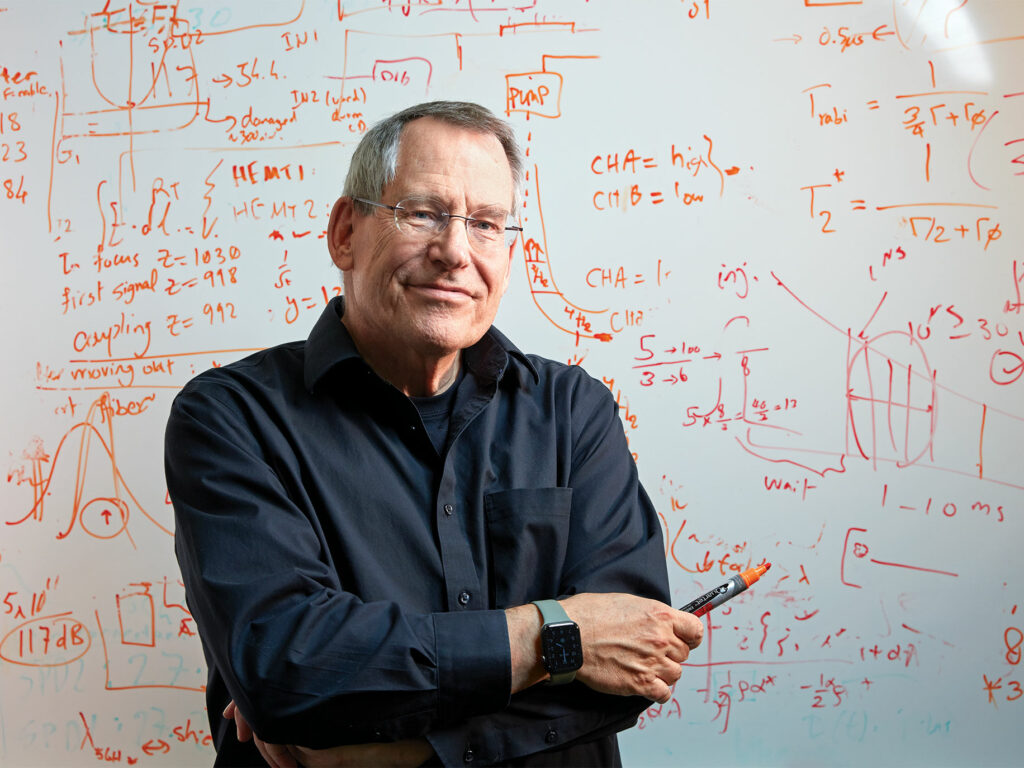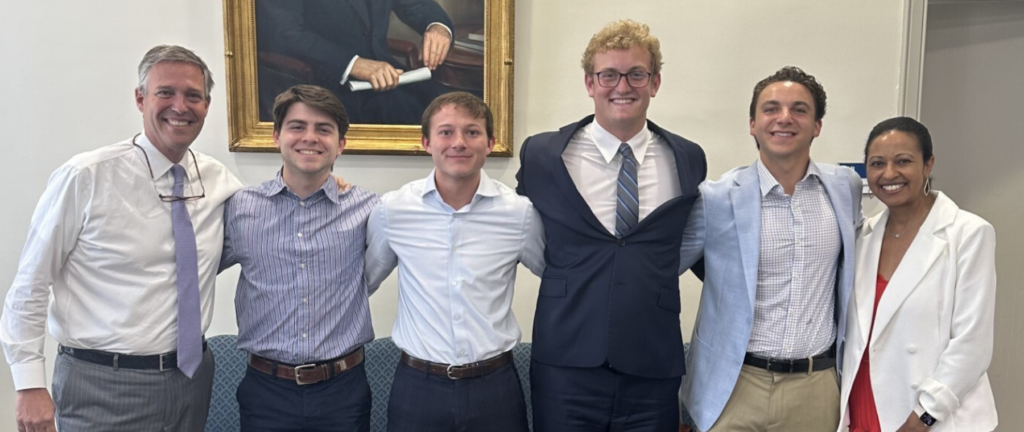
Photo by Jon Ly on Unsplash
When you walk outside and see that your lawn is wet, do you blame the weather, or maybe your lawn-obsessed neighbor’s overzealous sprinkler? Chance are, you’ll do some additional calculations before you stomp across the lawn to complain to your neighbor, or grab an umbrella, instead.
That type of reasoning is called inference — and quantum computers may be uniquely suited as machines to be really good at that type of reasoning, according to scientists at Cambridge Quantum Computing (CQC).
The scientists report that they have developed methods and demonstrated that quantum machines can learn to infer hidden information from very general probabilistic reasoning models, according to a company statement. They add that these methods could improve a broad range of applications where reasoning in complex systems and quantifying uncertainty are crucial, including medical diagnoses, fault-detection in mission-critical machines and financial forecasting for investment management.
In this paper published on the pre-print repository arXiv, CQC researchers established that quantum computers can learn to deal with the uncertainty that is typical of real-world scenarios, and which humans can often handle in an intuitive way. The research team, led by Dr. Marcello Benedetti with co-authors Brian Coyle, Dr. Michael Lubasch, and Dr. Matthias Rosenkranz, is part of the Quantum Machine Learning division of CQC, headed by Dr. Mattia Fiorentini.
The paper describes the implementation of three proofs of principle on simulators and on an IBM Q quantum computer to demonstrate quantum-assisted reasoning on:

- inference on random instances of a Bayesian network
- inferring market regime switches in a hidden Markov model of a simulated financial time series
- a medical diagnosis task known as the “lung cancer” problem.
The proofs of principle published in this paper are further evidence that quantum computing is a general-purpose technology, which in time can be used to model uncertainty in complex scenarios. In classical machine learning, the computing and energy costs required to handle complex decision-making algorithms using the probabilistic inferences needed to model uncertainty quickly become prohibitively expensive and absorb huge amounts of energy.
Machine learning scientists across industries, as well as quantum software and hardware developers are the groups of researchers that should benefit the most from this discovery in the near-term.
“In fact, one could say quantum computers are naturally predisposed to reason under uncertainty — a scenario typically encountered by us humans in our day-to-day lives.”
A Medium blog post accompanies the scientific paper and provides an explanation of the principles behind this pioneering work, as well as describes the proofs of principle implemented by the team.
 In the post, the authors — Matthias Rosenkranz and Mattia Fiorentini — define reasoning as inferring conclusions from premises and available information. Humans find inference natural — and do it all the time to better understand their environment and make decisions and predictions about the future, they added.
In the post, the authors — Matthias Rosenkranz and Mattia Fiorentini — define reasoning as inferring conclusions from premises and available information. Humans find inference natural — and do it all the time to better understand their environment and make decisions and predictions about the future, they added.
“For example, let’s say you step outside on a warm summer day and slip,” the researchers write. “The grass is wet, the ground is muddy and you wonder: was it rain or did the neighbour’s sprinkler soak the garden? Often our decisions are based on such reasoning: if you surmise it has been raining, chances are you will go back inside to find an umbrella in case more rain is on its way.”
While it seems simple, classical computers can’t match humans in this type of reasoning. And the reasoning tasks classical computers can do often come at the expense of high computational and electrical consumption, the researchers added.
Quantum computers seem primed to navigate uncertainty, according to the team.
“In fact, one could say quantum computers are naturally predisposed to reason under uncertainty — a scenario typically encountered by us humans in our day-to-day lives,” the researchers write.
With quantum devices set to improve in the coming years, this research lays the groundwork for quantum computing to be applied at scale both as a new tool for computational experimentation and of direct application in engineering and business-relevant problems.
According to the researchers, they see machine learning scientists, along with quantum software and hardware developers that may be the most interested in this research, at least initially.
“The first group may find these new tools useful for tackling ambitious problems such as studying reasoning and cause-effect in complex systems,” the researchers added. “The second group may apply our work to uncover new applications of near-term quantum computers in science, engineering and business – and even opportunities for a quantum
advantage.”
For more market insights, check out our latest quantum computing news here.



















